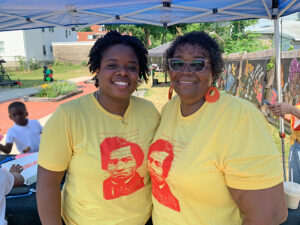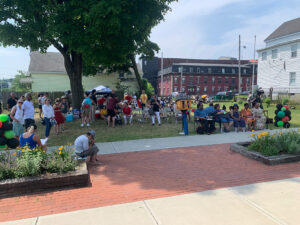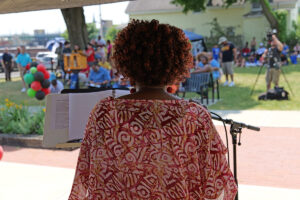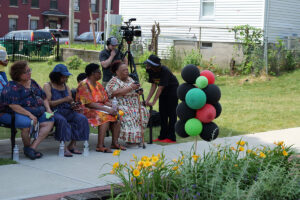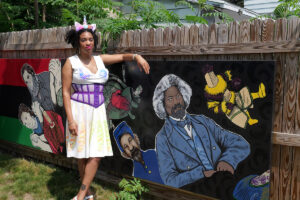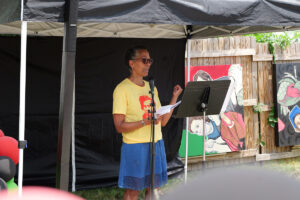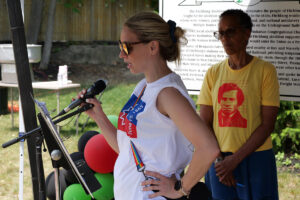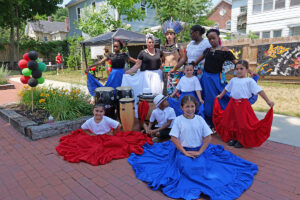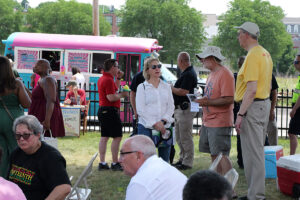Upwards of 80 community members, families, ROTC cadets, volunteers, and legislators gathered in Fitchburg’s Abolitionist Park on June 19 to read Frederick Douglass’ influential address, “What to the Slave is the Fourth of July?” The reading marks the first Reading Frederick Douglass Together program to take place at the park.
“I feel like we’re all abolitionists,” said Ruby Hall, co-chair of the Friends of Fitchburg Abolitionist Park. “We’re fighting to make it better for other people.”
Hall’s fellow co-chair, Isabel Mascary, emphasized that Douglass’ speech is important because “it provides background context as to why the Fourth of July doesn’t mean the same for everyone.”
Events like the Douglass reading, she said, are especially important for children and youth in the community.
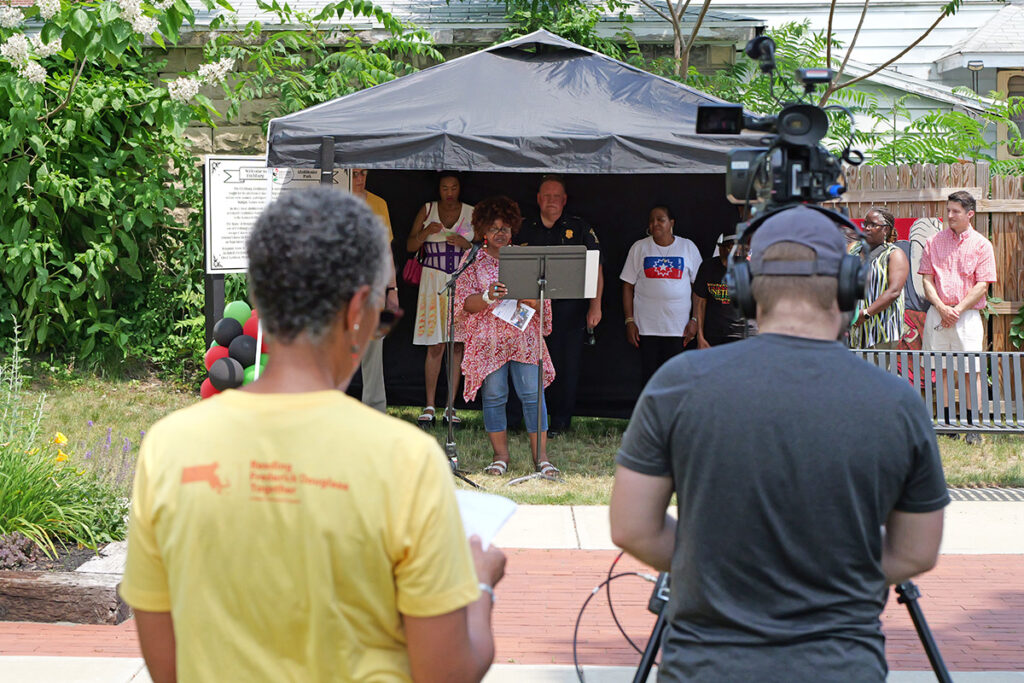
For Danette Day, associate professor of education at Fitchburg State University, Douglass’ words inspire a new generation of abolitionists.
“We are his future,” she said. “We are the people who will continue to fight for those freedoms and equality, and correct the injustices that we see along the way.”
To bring Juneteenth to a broader community is exciting, remarked Day, because her work as an educator is driven by sharing insights with others. “It’s to help people who aren’t aware to become more aware of what it was about this bondage, this enslavement of people, that was sinister, that needed to be changed.”
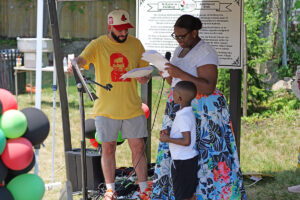
The park, which was completed in 2022, features a six panel mural by artist Digi Chivetta that depicts different aspects of Black history. One of the panels portrays Frederick Douglass. Fitchburg Mayor Samantha Squailia says that a community reading of “What to the Slave is the Fourth of July?” is a long time coming.
“The Frederick Douglass reading just adds to the richness and history of not only Fitchburg, but the entire nation,” said Squailia.
Following the reading, Puerto Rican youth dance group Guaribono Nakan performed two dances of conclude the afternoon event. The performances were fitting for the day, according to Diego, a member of the group, as specific movements and gestures represented “acts of rebellion” against colonial power.
You can watch a recording of the Fitchburg reading via Fitchburg Access Television.

